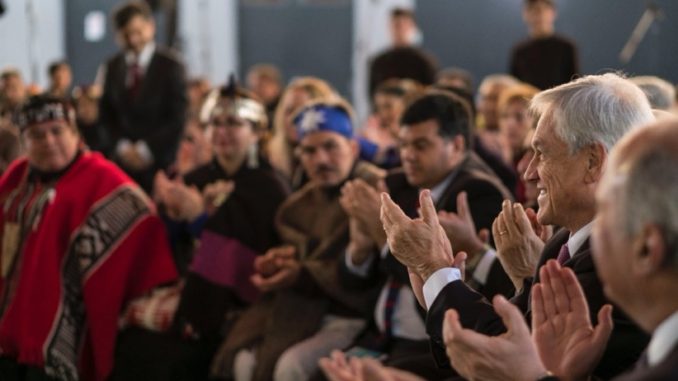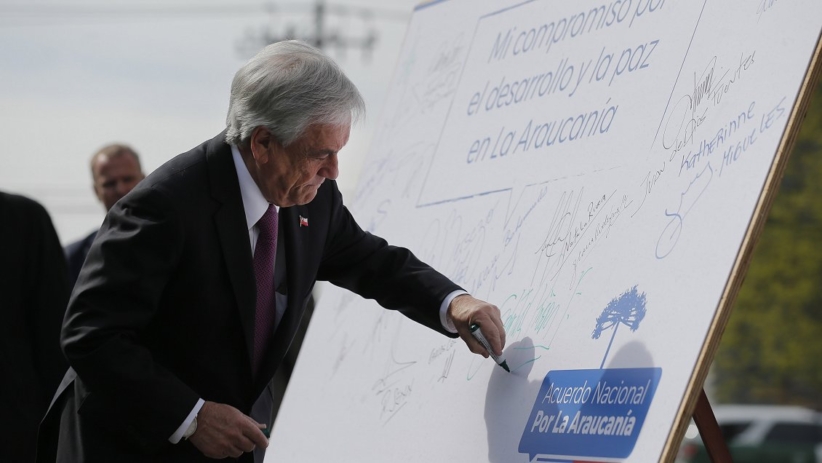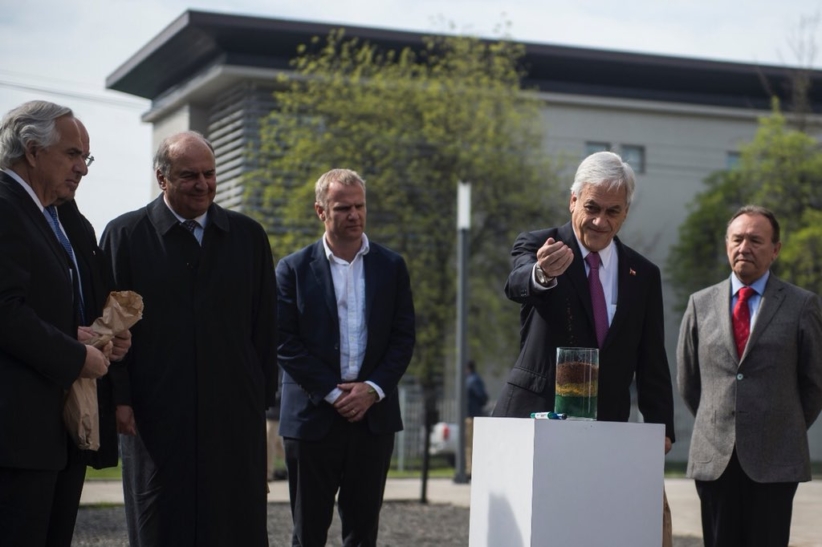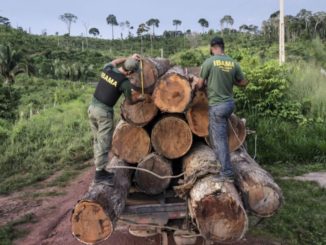
SANTIAGO – Chilean President Sebastian Piñera on Monday announced a plan worth $24 million aimed to end a lengthy conflict between the state and the country’s indigenous people in the south.
The AcuerdoPorLaAraucanía program aims to increase indigenous representation in the government and accelerate the creation of a ministry of indigenous people in the South American country. Housing subsidies, infrastructure improvements and a dozen new hospitals for the Araucania region are also part of the so-called “Plan Impulso Araucanía”, which contains “hundreds of initiatives”, according to government materials.

“Today we join forces to write a new story, which valuing the richness and cultural diversity of the region, achieve greater peace, justice and development,” Piñera said in broadcast comments as he unveiled the plan in Temuco.
“It is not the final answer, it is a proposal that we hope can be analyzed and enriched by all of civil society,” he later wrote on Twitter.
AHORA – El Pdte @sebastianpinera, junto a los ministros @andreschadwickp del @min_interior, @amorenocharme del @dsocial_gob, y el Intendente @LMayolB de @iaraucania, da a conocer en Temuco el “Acuerdo por el Desarrollo y la Paz en Le Araucanía”. #AcuerdoPorLaAraucanía pic.twitter.com/DNOO344xrk
— Prensa Presidencia de Chile (@presidencia_cl) September 24, 2018
The conservative leader confirmed that his government will promote the election of indigenous candidate “Plan Araucanía Impulso” through a “Quota Law”. The initiative assumes that – similar to what happens with the Women’s Quota Law – political parties must submit a mandatory percentage of indigenous candidates to elected office.
“We are going to promote a Quota Law that establishes basic levels of participation of candidates of indigenous peoples in the elections of popular positions “, from councilors to parliamentarians, indicated the Head of State, detailing that the objective is “to preserve and promote the diversity cultural of our country”.
In his speech, at Cerro Ñielol in Temuco, Piñera highlighted that the Plan Impulso Araucanía includes “hundreds of initiatives”; among them the constitutional recognition to the native towns.
The investment joins a list of past efforts to resolve the Mapuche conflict that mainly stems from a dispute over ancestral lands. Pinera’s center-right government has promised to prioritize improving relations with the Mapuche.
“The Plan will begin to be implemented immediately, but it will also be applied gradually, because the problems that have dragged on for decades and centuries require time to be fully resolved,” he reflected.

Piñera also announced reparation to the victims of rural violence, and that urgency will be given to the bill that creates the “Ministry of Indigenous Peoples and the Council of Indigenous Peoples”.
Around 600,000 Mapuche live in Chile, many in the forested, hilly provinces of Araucania and Bio Bio, roughly 400 miles (640 km) south of Santiago. The Mapuche accuse the state and private companies of taking their ancestral land, draining its natural resources, and using undue violence against them. Their communities are among the poorest in Chile.
‘Jungle Command’: Piñera creates special force to tackle “terrorism” in southern Chile



